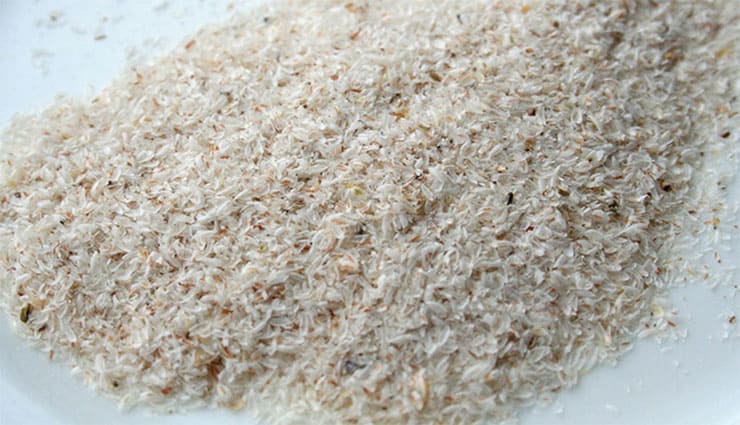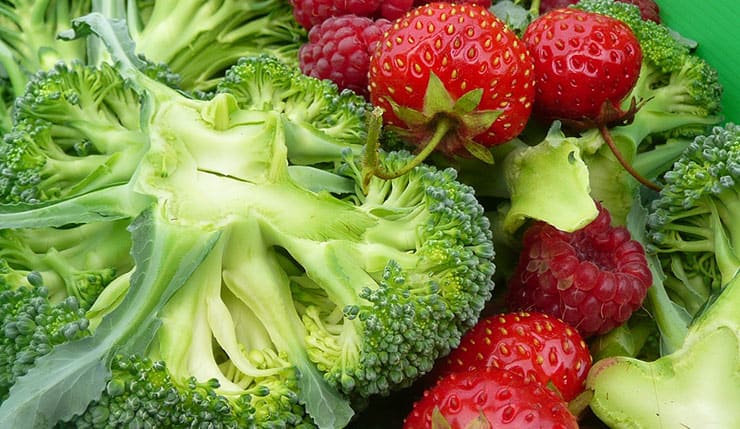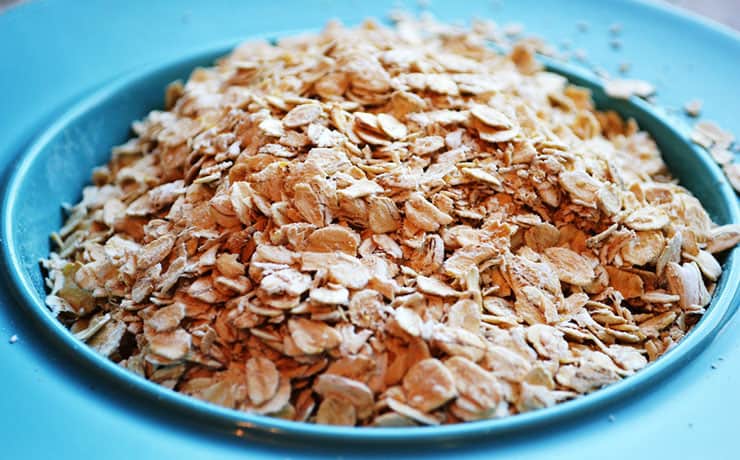We All Need More Of Fiber
For many people, the word fiber is a funny one. It instantly brings to mind sawdust, laxatives, and, let’s face it, poop.
But did you know that eating a diet rich in fiber can mean so much more than just regular bowel movements? Fiber is, without a doubt, one of the best cancer prevention measures! It’s true! Study after study has shown that a high fiber diet can reduce your risk of developing colorectal cancer by as much as 1/3rd and breast cancer by an unbelievable 40 %!
 One of the easiest ways to get your fiber every day is to use psyllium husks.
One of the easiest ways to get your fiber every day is to use psyllium husks.
Fiber might be a funny word, but the benefits it offers are anything but amusing! Take a look at the most powerful benefits you can get simply by eating a high fiber diet:
- Lose weight and maintain a healthy weight – all it takes as 30 grams of fiber each day.
- Healthier digestion – the good bacteria in your gut just gobble up the fiber in your colon, leading to less inflammation and a lower risk of almost every other major health problem, including obesity and metabolic syndrome.
- Cut your risk of developing type 2 diabetes
- Lowers your risk of heart disease
- Healthier bones
- Regular bowel movement
- Reduce your risk of certain cancers
- Get a natural “detox” with every meal – fiber naturally scrubs the colon clean of toxins that can build up over time
- Live longer overall - according to Harvard, as much as 19 percent longer than those who noshed on less fiber.
Fiber and Weight Loss
While fiber is a well known nutrient, most people don't really understand what it does and why we need it.
Most people think of fiber as something the elderly need to be concerned with to have regular bowel movements, but that's just a tiny portion of what fiber actually does.
One of the things most people are not aware of is that fiber, while inexpensive, can actually help you to lose weight.
We agree that most people are not interested in going around exclaiming that they lost weight "because of an increase in fiber!" We get it. Fiber isn't new, it isn't sexy, and it tends to bring only bowel movements to mind.
However, with more than a dozen clinical studies to back up the weight loss claim, perhaps it's time we started thinking of fiber in other terms.
Dieticians often recommend that those who want to lose weight should not only eat a diet high in fiber, but that they should also consider taking Glucomannan fiber supplements.
Fiber supplements, taken about 30 minutes before eating with a full glass of water, gives the stomach a feeling of fullness, so you should eat less at meal time. This is also a great way to suppress the appetite in between meals.
In one study, conducted at the University of Guelph in Canada, found that when 6 grams of inulin was added to the morning breakfast of young, healthy females, the women found that they had dulled appetites after just a few days. This suggests that increasing dietary fiber might have the ability to decrease appetite and, therefore, help people drop excess weight.
Fiber and Blood Sugar
It's worth mentioning here that the consumption of fiber supplements has been shown to improve blood sugar control and insulin. In fact, some studies show that fiber can even reduce the number of calories that the body absorbs, leading to a weight loss of 3 to 18 pounds in one year!
One such study, found in the prestigious New England Journal of Medicine, found that a diet containing approximetly 50 grams of fiber each day, which is double what the American Diabetes Association calls for, lowered insulin levels in the blood ,as well as lowered glucose levels by as much as 10 percent!.
Well, now that we know how much we can all benefit from fiber, let's take a minute to talk about the three different types of fiber.
Three Types of Fiber and Why They Matter
We consume fiber from all types of sources; fruits, grains, vegetables, nuts, seeds, and yes, even the infamous sawdust is still fiber, but not all fiber is created equal.
There are three types of fiber:
1. Prebiotic Soluble Fiber
This is a fairly new addition to the fiber group, but you can still lump it into the “soluble fiber” category if you wish. When soluble fibers are fermented in the colon, they have super health benefits as they increase the amount of “good” bacteria in the digestive system.
Prebiotic soluble fibrous foods include:
- Agave
- Asparagus
- Yams
- Leeks
- Bananas
- Garlic
- Onions
- Root vegetables, such as Jerusalem artichokes
- Grains such as wheat and rye
2. Soluble Fiber

This type of fiber can be dissolved in water and is used by the bacteria in the colon as their source of food. Allowed to grow, good bacteria offer the body many health benefits. Soluble fiber is found, at least to some degree, in produce, but your best choices are:
- Psyllium husk supplements
- Legumes, such as peas, soybeans, and other types of beans
- Most fruits, including pears, apples, plums, and berries
- Most vegetables, including carrots and broccoli
- Most root vegetables, including potatoes
- Grains, such as oats, rye, and barley
3. Insoluble Fiber

As you can imagine from the name, this type of fiber does not dissolve in water and it is not used by the good bacteria in your colon. However, this type of fiber holds on to water and, in doing so, gives you larger, easier to pass stools. This can prevent common problems such as hemorrhoids, diverticulitis, as well as sweeping out toxins and carcinogens, which can lead to cancer.
Insoluble sources of fiber include:
- Whole grains
- Some fruits, such as kiwi and tomatoes
- Corn bran, including popcorn
- Nuts and seeds
- The skin from most fruit and vegetables, including apples and potatoes
- Many vegetables such as celery, cauliflower, and green beans
The Mechanics of Fiber
Another way to understand fiber and how it works is to look at the mechanics behind each type of fiber. Fiber mechanisms fall into three main categories:
1. Bulking
Bulking fibers, such as psyllium and cellulose are terrific ways to combat constipation. Bulking fibers hold a great deal of water and push thing through the intestines.
2. Viscosity
Viscosity fibers, such as beat-glucan or psyllium are the best if your goal is lower cholesterol and glucose. These types of fiber thicken the contents of the digestive tract and slow down the diffusion of nutrients.
3. Fermentation
The best known fermentable fibers are inulin and resistant starch. Many fibers cannot be fermented, and therefore, cannot deliver the same benefits, such as increased mineral absorption, especially calcium, and increased immune support.
Fiber Supplements
You knew we were going to talk about that sawdust, didn't you?
Well, rest assured, while some companies were unscrupulous about adding untreated sawdust in their fiber supplements in the past, this isn’t the case today.
You will find a wide variety of supplements in your drug store, pharmacy, or even grocery stores, but they basically come down to three types:
1. Psyllium and Glucomannan
Psyllium (Organic India Whole Husk Psyllium) is a soluble plant fiber that has been used for centuries in India. It is a soluble fiber with mucilage. This is a great combination as the good bacteria in your colon will ferment it for food and it also retains a lot of water. If you consume at least 7 grams each day, it will also lower your cholesterol. Metamucil (Metamucil Daily Fiber Supplement) is one of the best known names for Psyllium.
Glucomannan (NOW Glucomannan) works the same way as psyllium; however, studies have shown that Glucomannan helps people to lose weight. Taking as little as 3 grams were shown to help people lose more weight that the placebo group, without losing muscle mass or bone density.
For your best health, switch off, taking Glucomannan one day and psyllium the next. Always be certain to read the label and be sure that you are getting 100 % pure product, free from added sugars, artificial flavors or colors, fillers, or gluten.<
You should also take a few extra minutes to allow the psyllium to be completely saturated with water before drinking. Otherwise, you risk some serious cork-like compounds of psyllium in the colon, causing severe constipation.
If you prefer, you can always add these to coconut milk based pudding or try lemon water for a change of pace.
2. Methyl Cellulose
This is the fancy word for sawdust. Well, not exactly sawdust, but they are wood chips that need to be treated in a variety of ways first, however, such as boiling them in certain types of acids. This allows the wood to be broken down into an insoluble fiber, but one that does dissolve in water. Citrucel (Citrucel Fiber Therapy) is one of the brand names you’ve probably seen. Do not take methyl cellulose if you have ulcerative colitis or Crohn’s disease.
3. Inulin
This is a prebiotic, soluble fiber that is found in most foods. Fiber Choice (Fiber Choice Sugar Free Chewable Tablets) is a well known brand name for this type of fiber supplement.
How Much Fiber is Enough?
For most people, the following guidelines apply:
- Under 50 years of age: Men 38 grams each day - Women 25 grams
- Over 50 years of age: Men 30 grams - Women 21 grams
A Great High Fiber Drink
One of the easiest ways to get your fiber every day is to use psyllium husks.
Take a 1 liter container of water and add 1 heaping teaspoon of green juice powder, ½ teaspoon of unrefined salt (such as sea salt), and two teaspoons of psyllium husks. If you like, you could add a tablespoon of aloe vera juice to improve cleansing. If you find this mixture too salty or not quite to your taste, add a small amount of Stevia to help balance out the salt and the overall flavor.
Allow this mixture to sit for 20 minutes or so, to allow the psyllium to absorb as much water as possible. Shake well before drinking.